- Joined
- Oct 9, 2007
- Messages
- 47,611 (7.45/day)
- Location
- Dublin, Ireland
| System Name | RBMK-1000 |
|---|---|
| Processor | AMD Ryzen 7 5700G |
| Motherboard | Gigabyte B550 AORUS Elite V2 |
| Cooling | DeepCool Gammax L240 V2 |
| Memory | 2x 16GB DDR4-3200 |
| Video Card(s) | Galax RTX 4070 Ti EX |
| Storage | Samsung 990 1TB |
| Display(s) | BenQ 1440p 60 Hz 27-inch |
| Case | Corsair Carbide 100R |
| Audio Device(s) | ASUS SupremeFX S1220A |
| Power Supply | Cooler Master MWE Gold 650W |
| Mouse | ASUS ROG Strix Impact |
| Keyboard | Gamdias Hermes E2 |
| Software | Windows 11 Pro |
In what could be evidence of Intel pulling off a major generational IPC increase, Chinese PC enthusiast Extreme Player, with access to a Core i9-13900K engineering sample (ES), tested the chip on a handful synthetic tests, with the processor yielding significant performance gains over its predecessor, the i9-12900K. The most striking performance number has to be the CPU-Z Bench single-core test, which shows an impressive 9.41 percent increase over that of the i9-12900K.
The i9-13900K packs "Raptor Cove" performance cores, which Intel claims come with a generational IPC increase over the "Golden Cove" P-cores. The 9.4% performance increase could be a result of not just increased IPC, but also higher clock speeds (set at 5.50 GHz, the assumed maximum boost frequency of the retail processor). The multi-threaded CPU-Z Bench sees an incredible 46.34% performance increase. This stems from not just increased performance on the eight P-cores, but also the doubling in E-cores from 8 to 16. The E-core clusters also see a doubling in L2 cache sizes. The story repeats with Cinebench R23, with an incredible 13.53% single-thread performance increase, and a 40.25% multi-threaded performance increase.
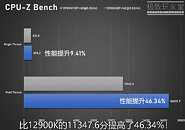
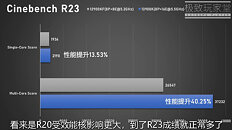
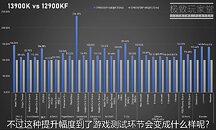
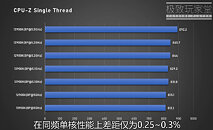
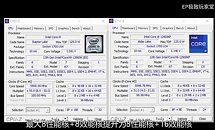
View at TechPowerUp Main Site | Source
The i9-13900K packs "Raptor Cove" performance cores, which Intel claims come with a generational IPC increase over the "Golden Cove" P-cores. The 9.4% performance increase could be a result of not just increased IPC, but also higher clock speeds (set at 5.50 GHz, the assumed maximum boost frequency of the retail processor). The multi-threaded CPU-Z Bench sees an incredible 46.34% performance increase. This stems from not just increased performance on the eight P-cores, but also the doubling in E-cores from 8 to 16. The E-core clusters also see a doubling in L2 cache sizes. The story repeats with Cinebench R23, with an incredible 13.53% single-thread performance increase, and a 40.25% multi-threaded performance increase.





View at TechPowerUp Main Site | Source












